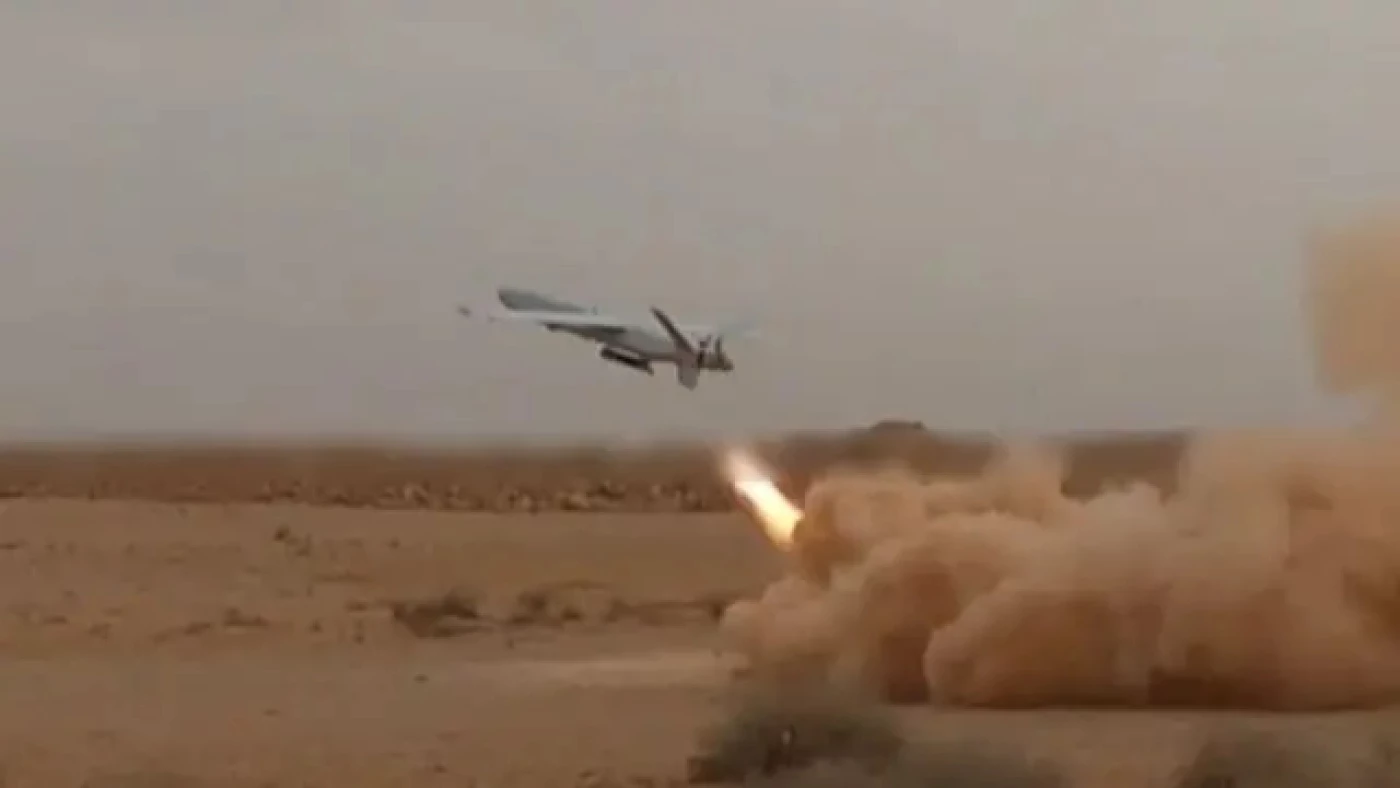ERBIL, Kurdistan Region of Iraq - The Iran-backed Islamic Resistance in Iraq announced on Wednesday they had launched four drone attacks targeting Israeli forces on the annexed Golan heights for a second consecutive day, despite several warnings from Iraqi Prime Minister Mohammed Shia’ al-Sudani that Iraq must distant itself from the severe consequences of an all-out regional war.
“In support of our people in Palestine and Lebanon, and in response to the massacres committed by the usurping entity against civilians, including children, women and the elderly, the Mujahideen of the Islamic Resistance in Iraq attacked...a vital target in the occupied Golan for the second time, using drones,” the Islamic Resistance in Iraq said in a statement.
The group reiterated that they would continue their "operations to destroy the strongholds of the enemies.”
The Iran-backed militia groups in Iraq have accelerated their drone attacks on the Israeli military ever since Tel Aviv killed Hezbollah leader Hassan Nasarallah in airstrikes on a southern Beirut suburb nearly two weeks ago.
The Middle East is on the brink of an all-out war in the wake of heightened escalations between Israel and its arch-foe regional forces including Iran and smaller armed groups like Hezbollah in Lebanon, Huthis in Yemen, Hamas in Palestine and Iran-backed Shiite militia groups in Iraq and Syria.
The international community including France and the US, and regional countries including Iraq and Lebanon have been calling for a ceasefire, a request Israel has categorically rejected. Prime Minister Benjamin Netanyahu in his latest remarks reiterated that they would continue to fight what they called “a sacred war.”
Iraq has so far managed to shield itself from the direct effects of the conflict, with PM Sudani repeatedly crediting this success to cooperation with international partners while stressing the need for continued diplomatic efforts to prevent further deterioration.
Iraq’s final say is vested in the government itself, the Iraqi government said in a statement on Tuesday.
“The official positions of Iraq are expressed exclusively by the government, through its policies and steps based on the constitution and the democratic system,” the government said, renewing his call the international community to ramp up their efforts in bringing the “Zionist aggressions” in the region.
The Iraqi government’s message came one day after PM Sudani directed a message to international allies, including US President Joe Biden and the European Union, warning that the Middle East is on the verge of a dangerous slide that could lead to continuous wars, destabilize the global economy, and significantly hinder development.
"We stand at the brink of a dangerous slide that could drag the region and the world into continuous wars, shake the global economy, and cause a major setback in development," Sudani said, highlighting the Middle East’s vital role as the world's energy supplier.
On October 7, 2023, Hamas launched a surprise and unprecedented attack on Israel.
In response, Israel launched a full-scale military aggression against Gaza, resulting in the destruction of approximately 90 percent of the territory, according to reports.
The Israeli military has also expanded its operations to Lebanon, carrying out heavy attacks that have targeted civilian areas, leading to significant casualties and widespread destruction.
Tensions between Israel and Iran have also sharply escalated during this period. The situation reached a boiling point when Israel reportedly carried out targeted assassinations of senior pro-Iran leaders, including Ismail Haniyeh, the head of Hamas’ political bureau, in Iran, and Nasrallah, the leader of the Lebanese Hezbollah, in Beirut.
In a televised speech on Tuesday night, Israeli PM Netanyahu announced they killed Lebanese Hezbollah chief Hashem Safieddine, Nasrallah’s successor.
These high-profile killings have intensified hostilities between Israel and Iran, which recently resulted in retaliation attack on Israel by Iran, as well as with Hezbollah, adding another volatile layer to the already explosive war in the region.



 Facebook
Facebook
 LinkedIn
LinkedIn
 Telegram
Telegram
 X
X


